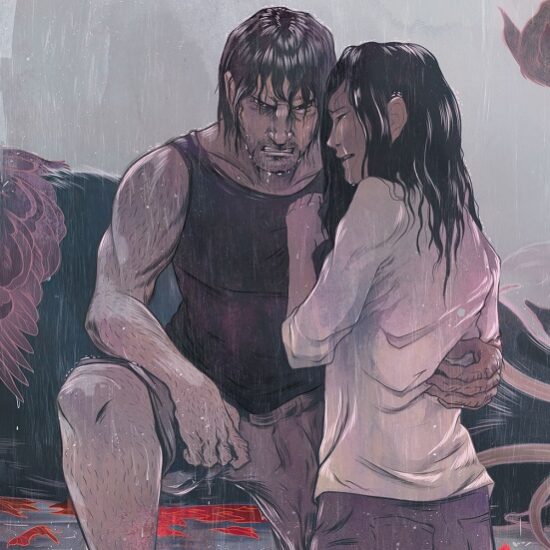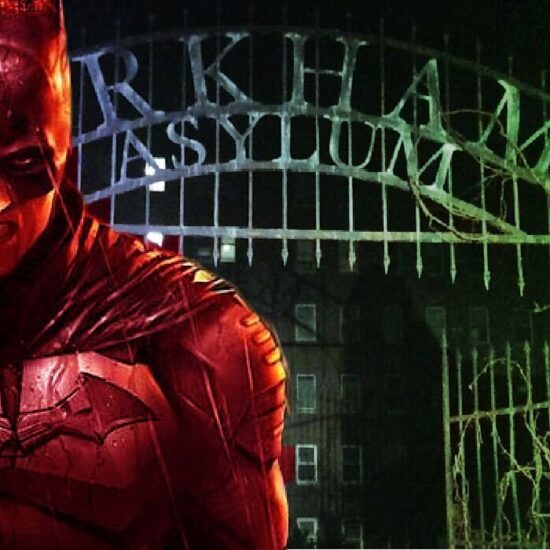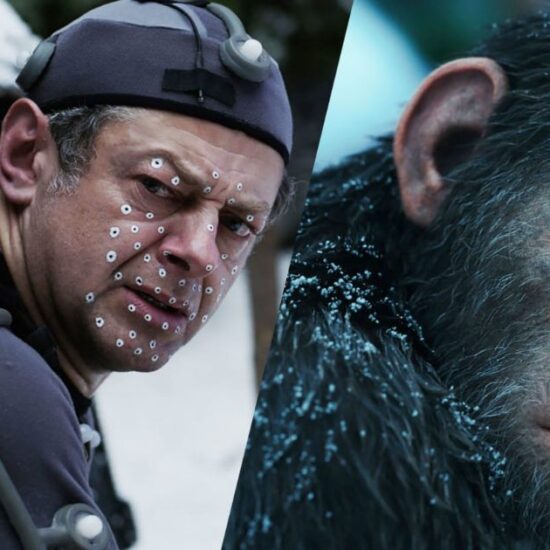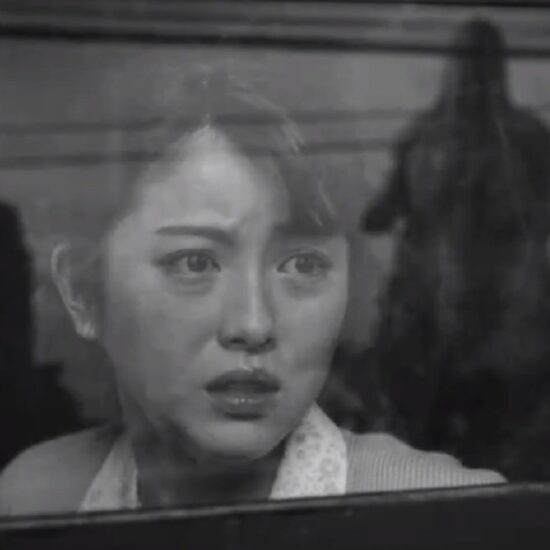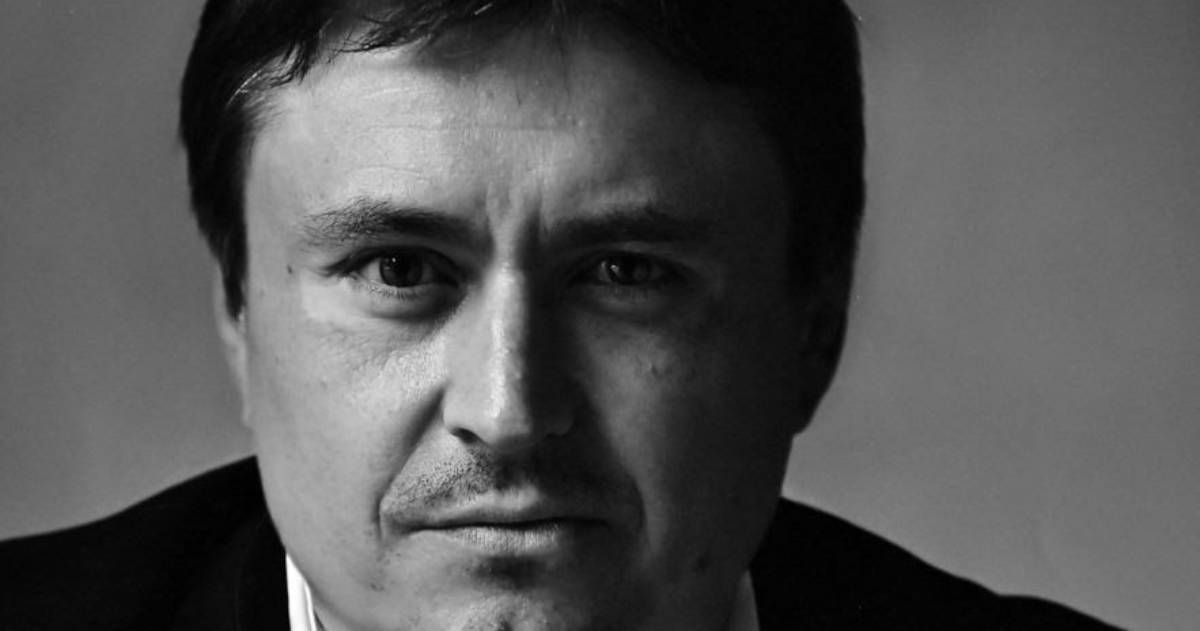
The great Romanian filmmaker Cristian Mungiu has been a hit a Cannes Film Festivals for years at this point. In 2007, his second feature, 4 Months, 3 Weeks and 2 Days, was awarded the Palme d’Or and later received several ‘best film of the year’ awards from various international associations of film critics.
Mungiu returned to Cannes again and again, where he won two more awards (for director and screenplay) for hit projects like Graduation and Beyond the Hills. And now, his new film R.M.N. (the abbreviation cleverly referring to the scanning of the human brain while abbreviating Romania), is playing in U.S. theaters following last year’s debut Cannes — a festival that is highly anticipated this year.
R.M.N. takes place a few days before Christmas back in 2019 and centers on a morally ambiguous man named Matthias (Marin Grigoire). Having quit his job in Germany, Matthias returns to his multi-ethnic Transylvanian village and wishes to involve himself more in the education of his son, Rudi (Mark Blenyesi). Matthias believes Rudi was left for too long in the care of his mother, Ana (Macrina Bârlădeanu), and hopes to rid the boy of the unresolved fears that have taken hold of him. When a few new workers are hired at a small factory, the peace of their community is disturbed in more ways than one.
We recently caught up with writer-director Cristian Mungiu, who opened up about the unique creative process behind his latest feature. He also spoke about the film’s countless long takes and how they somewhat reflect cinema’s ability to imitate reality. Read our exclusive interview below.
Shooting R.M.N. Based Around Xenophobia
MW: What inspired you to come up with such an interesting storyline for R.M.N.?
Cristian Mungiu: The film is based on an incident that happened, I think, in 2020 in Romania. And the starting incident was covered a lot by the press; it became kind of a scandal. So it wasn’t difficult for that incident to reach me. What was more difficult is for me to figure out what I could take out of it, besides the fact that it was quite spectacular.
Mungiu: I thought that it was speaking so much about the world today, with all its limitations, that I could make a film as a portrait of who we are today, to report a snapshot [of] a world which is moving very, very fast, faster than people can internalize somehow, and this is creating a lot of anxiety and a lot of fears, because people don’t really feel where all this globalization is going. It became so easy to travel, and you have to share your space, your living space, with so many people with different opinions who seem to be so different from you. And we’re not really accustomed to this rhythm.
Mungiu: For thousands of years, our DNA was that you knew your village, and if somebody else from a different village would come, that was already a foreigner. And now, there are millions of people coming with different religions. I thought that this speaks about the state of the world today, and I thought that it speaks about some traits, which are not the nicest in our personality. Like, this idea that we’re very tribal.
Mungiu: I think when more people see it in the United States, I think they’re really going to relate. It takes place in Transylvania, but I think a lot of people […] prefer to imagine that this is happening somewhere far away from them in this small little country, which is xenophobic. But actually, it’s not right to consider that this is just their problem or our problem. It is a problem that we can see, unfortunately, every day, in a lot of countries. Not only us, but you can see it in France, Italy, Africa, and China. And you see that part of it’s from the context, which is local, but part of it is from people being very easily manipulated by this populism and turning them against ‘the others,’ because they are encouraged to focus more on the differences between them, among them, and not on what makes us all humans.
MW: Could you talk about the film’s sort of open-ended conclusion?
Mungiu: For me, it’s an encouragement for the viewers to consider their position between these two sides of your life, on one side as this darker side of yours, populated by these instincts and creatures and violent ideas […] from where all these murky impulses pop up. And on the other side, of course, through education and culture, you have a little bit of empathy, and have oneness, and that’s your human side. But I’m not sure that they are balanced. I think that in different moments of your life, one or the other prevail. And I’m sorry to say that in the moments which are surprising you, it’s more the violent side which is prevailing.
Mungiu: The film for me speaks a lot about this internal conflict between the human inside of yourself and the animal. And I couldn’t think of a better ending, then of ending up with a character who became aware that the source of evil in the world might not just be external, but it can be inside himself, and he needs to make some choices.
It’s difficult to find the visual equivalent of some values, which are very abstract. How do you talk about fear and anxiety and truth? And how do you talk about manipulation and how to talk about subconscious? How do you talk about this duality of man and animal? And I had to come up with some things which are still realistically explained, but eventually they come up with another level of understanding.
Cristian Mungiu, Master of Cinema
MW: R.M.N. is full of scenes that are each one very long take, especially that scene in City Hall. Those were really impressive but must have been challenging to pull off.
Mungiu: There are a lot of challenges. I will say that this is the most difficult way of staging situations in cinema when you want to shoot them like this, but this not because I want to see that I’m stronger than other directors, I don’t really care. Only the result matters. And it matters that it corresponds to my principles about the relationship between cinema and reality. I make a kind of cinema which is based on reality. So I started by observing reality, and you know, reality is this continuum. There is no editing, you cannot cut off the parts that you don’t like.
Mungiu: This brings our responsibility for the viewer, who needs to decide what’s important in a situation; I won’t come for a close up, I won’t cut the parts which are not important. I try to signal to them that I observe life in the most objective way possible. It’s still a convention. If there’s a power shortage, there’s no film. But you know, what’s interesting is that people come into the theater knowing that it’s a convention, and there are actors on the screen, and there’s a script over there. But eventually, when they get to this 20-minute scene, if you don’t cut and you don’t use a lot of music, they will follow the situation, and it’s going to look as if that could happen to them. And this corresponds to the truth that I hope the film manages to pass to them, that it could happen to them as well.
MW: You’ve made many films at this point. Was making R.M.N. particularly unique compared to your past projects?
Mungiu: I think that every movie is challenging, in the sense that the movie doesn’t exist prior to making it. And you go there, having an idea about how you’d like the film to be, but you meet a lot of difficulties. And eventually, if you manage to stay very open, you will learn which of your ideas are valid and which are not, and you have to drop them because somehow the film will tell you that they do not fit in. I wanted to do something with the film, which I couldn’t. I wanted to reinvent the way I see cinema, but I couldn’t, I still see cinema in the same way.
Mungiu: So what I did, I was trying to find another thing which is relevant for the state of the world today. And this is what makes it the best thing that I could say now, because it’s a portrait of who we are today, and it’s a snapshot of the way I see reality today. I think that this is something that cinema can still do.
From IFC Films, R.M.N. is now in theaters.










